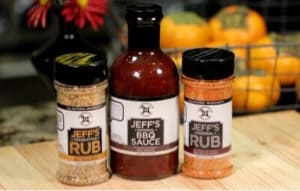Thanks guys. No need to apologize, though, this forum is one of the most helpful I've found on any topic. The big thing I'm struggling with at this point is trying to change techniques to work with the pasture raised animals. I know these meats are supposed to be leaner and not require as much cooking time, but I don't typically cook by time, I go by temps. So when I am doing pork from a Berkshire hog, should I not be targetting 160 degrees as a minimum? I've read that most of those USDA minimum temps are basically just a safeguard to make sure you aren't going to get sick. But if I have a piece of a meat from a local farmer that I trust, can I get by with less? I eat my steaks rare and so far I have loved all the grass-fed beef that I've made. But nobody eats rare pork and I've been struggling with trying to get ribs and roasts to taste as good as the grocery store versions did. I'm open for any tips though. My parents are coming in to town this weekend and I'd like to smoke some things for them. I don't want my lack of experience to make the Big Green Egg look bad :-)





